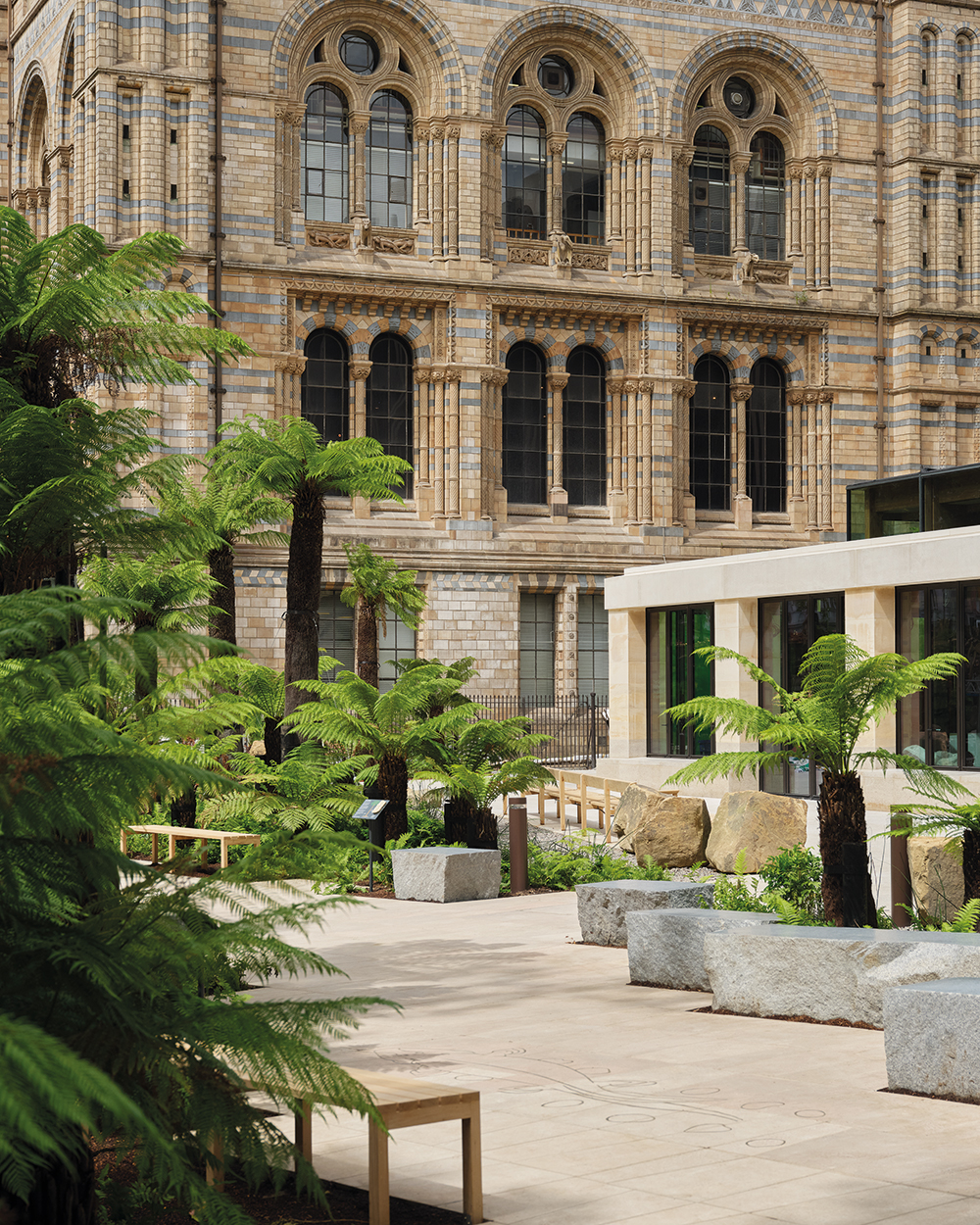
The Natural History Museum is one of the most beautiful buildings in London, but its gardens have long been a bit boring – just a pavement on the way in to Alfred Waterhouse’s ornate ‘cathedral to nature’. Most people noticed them solely when the ice rink appeared at Christmas. There was a wildlife garden in one corner that only real enthusiasts (like me) bothered to visit.
Where else in London could you walk three billion years along pavements this good?
With this enormous overhaul of the site, that’s all changed. The scale of the Evolution Garden, designed by landscape architects J&L Gibbons and architects Feilden Fowles, is enormous, both in size and the period of time it covers. Instead of hauling yourself up a sharp flight of steps from the Tube, you now saunter through a ravine of rocks, three billion years old. These huge, crashing cliffs start with the oldest rock in the British Isles, Lewisian gneiss, and move through Torridonian sandstone, Cambrian quartzite and Welsh heather slate. The rocks continue through the Evolution Garden, creating spines and barriers to divide rampaging children from the new planting. You can enjoy those plants from a series of benches also hewn from interesting rocks, including some striking, beautifully smooth white chalk and flint benches.
I will get on to the planting in a minute, but the bones of this design are beautiful too. The pavements are really very clever. They teach you things without ever being earnest: the brass inlays describe fossils, geological eras and processes such as volcanic eruptions and extinctions. By the time the path reaches the end of the garden, human footprints emerge and the terrazzo throws up evidence of human life, including shards of blue grass, pottery and plastics.
Humans come on to the scene pretty late, and so do flowers, which is why the planting is largely foliage-focused.

Magazine articles are subscriber-only. Keep reading for just £1 a month
SUBSCRIBE TODAY- Free delivery of the magazine
- Unlimited website and app access
- Subscriber-only newsletters









Comments
Join the debate for just $5 for 3 months
Be part of the conversation with other Spectator readers by getting your first three months for $5.
UNLOCK ACCESS Just $5 for 3 monthsAlready a subscriber? Log in